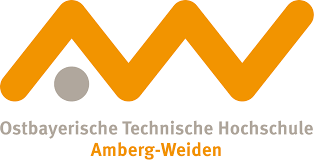You’re using the old Program Database. The new StudyBuddy Database is live with updated courses and a wishlist to save your programs.
Step 1 - Find your Study Program

RWTH Aachen University
Aachen
Engineering Geohazards
Subjects: Engineering;Technology
M.Sc. | Master of Science
Course description
Society worldwide often faces the wrath of extreme natural events, leading to significant economic losses, loss of life, and threats to social structures. Predicting these events in terms of their scope, location, timing, and intensity, and mitigating their impacts, is a crucial interdisciplinary challenge at local, national, and global levels. The severity of exogenous natural events like storms, storm surges, and heavy rainfall is on the rise, while endogenous events such as earthquakes and volcanic eruptions continue to cause varying degrees of damage. The aftermath of these events often triggers complex chains of cascading catastrophes, such as tsunamis and mass movements, which can be equally devastating. The interdisciplinary Master's degree program in Engineering Geohazards (EGH) bridges natural sciences, engineering, and economics. Over four semesters, students gain a solid geoscientific foundation to understand the complex impacts of natural hazards and evaluate their societal consequences. A key component of this program is the responsible development and design of engineering protection measures to safeguard lives from natural disasters. Additionally, the curriculum equips students with skills for sustainable preparation and rehabilitation of habitats, balancing disaster prevention, economics, and ecology, as disaster management incurs high costs. Graduates of the EGH program
Program Information
| Study Location | Aachen |
| Start Semester | Summer, Winter |
| Study Form | Full-time |
| Study Type | Postgraduate |
| Teaching Language | English |
| Dual | No |
| Remote | No |
| Application Fee non-EU | No information |
| Study Length | 4 Semesters |
| Tuition Fees per Semester | No Tuition Fee |
| Cost per Semester | 305 EUR |
Step 2 - Check Application Requirements
Application Requirements
Language Requirements
| CEFR | No information |
| IELTS | No information |
| Cambridge (CAE) | No information |
| TOEFL IBT | No information |
English (B2)
Qualification Requirements
Bachelor of Science in geosciences, geography, environmental sciences, environmental or civil engineering with at least 180 ECTS, of which at least: 15 ECTS in mathematical, chemical and physical modules 30 ECTS in geoscientific modules and in geoscientific fieldwork Interest in nature-related and geoscientific tasks Good IT skills Good verbal English skills; the degree program is taught entirely in English Good verbal and written mode of expression
Application Process
| Acceptance Interview | No |
| Acceptance local admission restrictions | Not restricted |
| Application | directly at the University |
Step 3 - Get studying insights
Your Free StudyBuddy Checklist
Making your move to Germany easy
-
Simplified step-by-step Checklist
-
Track progress and complete tasks on the go
-
Direct access to webinars and resources
-1.png?width=1179&height=1764&name=image%20(6)-1.png)

Free Live Webinar
How to Study in Germany for Free
Get ready to study in Germany!
February 26th, 2026
-
Learn how to find your ideal program
-
Step-by-step application guide
-
Tips and tricks to get admission
Step 4 – Apply for a Visa

German Visa Guide
Your tailored German visa application guide
Be Prepared for Your Visa Appointment
Value Package
-
GERMAN BLOCKED ACCOUNT
-
Accepted by all German authorities
-
Instant blocked amount confirmation once funds are received
-
TRAVEL HEALTH INSURANCE / INCOMING INSURANCE
-
Free coverage worth up to €953. Mandatory for your visa
-
GERMAN HEALTH INSURANCE
-
Award-winning, affordable cover for visa, university, and life in Germany4
-
Up to €90 cashback with your personalized insurance2
-
FREE GERMAN BANK ACCOUNT
-
Instant access to monthly payouts + automatically connected to your Blocked Account
-
Free digital bank card ready to use worldwide. Apple + Google Pay.
-
ADDITIONAL FREE BENEFITS
-
Free International Student ID Card (digital) with thousands of discounts1
-
In-app accommodation access
-
COST BREAKDOWN
-
Monthly fee: Only €5
-
Blocked Account set-up fee: €89








